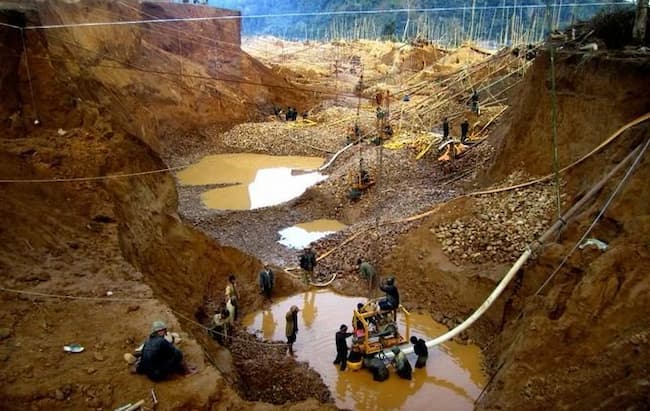The Federal Government said that it has been taking steps to reduce the activities of illegal miners around the country, a problem that it claimed has gravely impacted the country’s economy.
The Minister of Mines and Steel Development, Olamilekan Adegbite, stated this in Abuja and mentioned that one of the achievements of the ministry has been to coordinate 4,000 mining cooperatives while enforcing laws against illegal mining and other activities in the sector.
Adegbite said, “We want to add value of beneficiation in the sector to enable us redirect it. We are de-risking the sector to make it attractive for investors.
“Our current reforms are yielding results. You need to see what the sector is contributing to the GDP 10 years ago and now to appreciate the reforms. For instance, we were doing less than a billion naira contribution to the GDP 10 years ago, but now it is more than N10 billion.”
Adegbite admitted that illegal mining remained a problem, but he also said that the ministry was collaborating with the Nigeria Customs Service and the Nigeria Immigration Service to solve the problem.
He asserted that the $100 million investment made by the current administration in de-risking the sector had enhanced investors’ interest in the sector.
He went on to say that the measures of the Buhari-led administration “have helped us in acquiring data for the industry, which is now boosting investors’ interest for the sector.”
Adegbite asserted that the discovery of oil distracted Nigeria from increasing mining investments, which is why it does not economically surpass Australia and South Africa in terms of mining benefits.
“These countries have been doing mining for over 200 years without interruption. Petroleum discovery swayed Nigeria’s interest in mining, with less investments by the government on mining exploration,” he said.
He also explained that global miners were finding their way to Nigeria due to lower cost of exploration, when compared with established global mining jurisdictions.
“It takes about $400 to mine gold in Nigeria, whereas in established jurisdictions like Australia and United Kingdom, it takes to up to $1,200 to mine an ounce of gold,” he said.
The minister added that upbeat investors from Canada and the United Kingdom had expressed interest in Nigeria’s mining sector, as the government intensifies efforts to de-risk the sector.
He also said the government had commenced enforcement of the beneficiation order, as approved by the Federal Executive Council, to disallow scavenging and raw exports of Nigeria’s solid mineral resources.
“I was in Saudi Arabia and the Tesla people approached us and requested to mine our lithium. I told them to come and build their battery factory in our country rather than explore the raw resources. This is how we are growing our beneficiation strategy and adding value to our mineral resources.
“In the last two years, people have come in from the United Kingdom, Canada and the United States to advance discussions with us on investments in the mining sector. All these are because of reforms in the sector,” he added.













